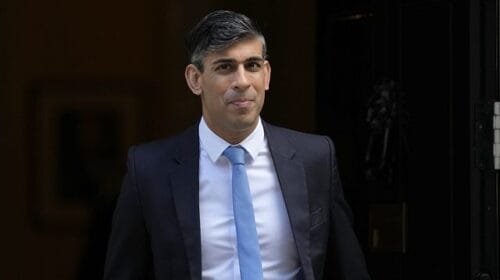Ghana’s new banknotes spark confusion over relevance

Ghana’s economy has over the last decade been on a roller coaster with signs of positivity and growth; decreasing inflation and subtle macro-economic stability at times.
A recent four year deal with the International Monetary Fund was to ensure that the country resets its economic fundamentals and build on that.
But one major thing has been a challenge for the economy; its currency the cedi.
Often a tool for political propaganda, successive governments have supervised a more than 300 percent depreciation of the local currency after a re-denomination exercise in 2007.
The effect of this high fall in the cedi has had rippling effect on every aspect of the economy with Ghana a net importer of most of its consumables.
Pegged at over 5 cedis to a dollar, most economists have stressed the need for the country’s government to begin to address the challenge from its fundamentals.
To respond to this, the country’s central bank last month introduced new set of bank notes to take off some pressure on some smaller denominations.
The Bank of Ghana introduced new bank notes of 100 and 200 cedis as well as a new 2 cedi coin.
Responding to weak currency
Explaining the reasoning behind the decision, the central bank governor, Dr Ernest Addison said the new notes which are of higher value are to reduce the dead-weight burden on the economy.
He said “The Bank of Ghana is introducing a new GH¢2 coin, and GH¢100 and GH¢2 banknotes denominations into circulation to complement the existing series to ensure customer convenience and bring about efficiency in the printing of currency to generate savings for the country.
These new higher value denominations will only restore partially the dollar value of the higher denomination GH¢200 to about US$40, not quite close to levels in 2007, but high enough to significantly reduce the dead-weight burden and high transaction cost in making high-valued purchases in a cash-based economy like Ghana.”
We have introduced new higher-denomination banknotes and coins into circulation. Know the Cedi and Keep it Clean #KCKC pic.twitter.com/o9ev0IR8dc
— Bank of Ghana (@thebankofghana) November 29, 2019
The announcement by the central bank opened the flood gates of reactions with many questioning the significance of the higher notes to dealing with the bottlenecks of Ghana’s economy.
Financial analyst, Dr Richmond Atuahene has lauded the Central Bank for the initiative. He argued that since more cedi notes are printed just for its equivalent dollar or pounds, that makes the new notes important.
New notes spark reactions
“It’s very expensive but we need to move abreast with times. Other than that, we’ll be left behind. Once upon a time, the cedi was equivalent to a dollar. Currently you need 5 cedis and some pesewas before you can get a dollar. So even with the new notes, 200 cedis will only be equivalent to between 38 and 40 dollars. The currency has depreciated, so we need to move in tandem with the best practice.”
He adds however that in the scheme of things, the introduction of the new notes will do little to tackle the fast depreciating currency; terming the move solely as currency management.
Tackling the concerns of the higher notes leading to inflation as has been the aggregated views of a cross section of the citizenry, Dr Richmond Atuahene said it was unlikely.
“I don’t think so. It’s not about price hikes. One person is fighting inflation but at the same time hiking prices? Then things will spiral out of control. We are less informed in this country. Let us see for the next 3 months or one year if they’ll be price hikes.”
But his position is not supported by fellow economist, Dr Laud Mensah. For Dr Mensah the prices of goods in the lower category could shoot up.
“For me, I think it has the tendency of causing inflation because when you are pricing, you will look at the minimum and what is convenient to handle and at the end of the day, the lower categories of consumption like water and others will start shooting up. The inflation that we have been struggling for it to come down over the years, will end up going up again.”
Opposition condemns move
For the country’s opposition party the NDC, the printing of the new notes doesn’t quite make sense.
An opposition lawmaker, Isaac Adongo questioned the rationale of the state to print new notes when it was strongly advocating for a cashless economy.
“This actually tells of a government that is in total disarray. There is a very serious policy contradiction in terms of what the government proposes for ensuring a smooth running of the economy and the actions that are being taken by the government”.
Another lawmaker Edward Dery said parliament will initiate processes to have the Central Bank governor appear before the house to answer questions.
“If you can go and polish our own currency at a cost to the taxpayer and you are not willing to tell us how much it costs us then that is a complete financial loss to the state.”
Concerns of whether this will do anything to aid the ailing cedi remains in doubt.
Source: Africafeeds.com




